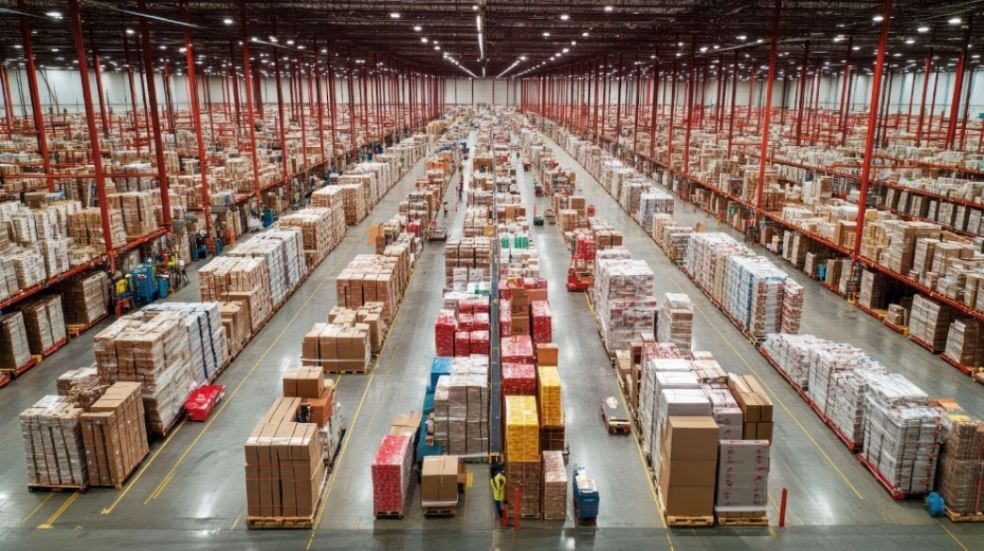
How Onsite Packaging Melbourne Supports UK Exporters
Effective export shipping involves several moving parts, each contributing to the success or failure of the entire operation. Business owners who want to thrive in the global market must get things right from the start. Of the several activities involved in international trading, packaging is where they have the most control—particularly if they opt for on-site packaging services.
Dealing with the complex aspects of shipping and packing goods is particularly crucial in the UK, a country that primarily ships out heavy and fragile equipment. Government records show that cars (GBP£ 32.9 billion), mechanical generators (GBP£ 32.7 bn), aircraft (GBP£ 1.6 bn), and general machinery (GBP£ 10 bn) were among the top exported products in 2024. (1)
But how can exporters benefit from partnering with packaging service providers? This article explores how these companies work in enhancing business efficiency and improving supply chains.
Versatile Designs that Cater to Different Markets
Onsite packaging, whether in Melbourne, the UK, or other countries, works the same. This business model provides solutions directly at the customer’s location rather than transporting items to a separate facility.
Professional packaging services handle an extensive range of products for export, including bulky furniture. As such, they’re crucial when storing or shipping goods that are too large, delicate, or logistically complex to be moved.
Providers can design and create wooden crates and cases in a wide range of sizes and designs. Open-slatted crates are ideal for robust items, including certain types of industrial equipment, that need ventilation. Most perishable goods, like fruits and vegetables, are transported in open boxes but are protected primarily by plastic wraps and shrink wraps.
Meanwhile, fully enclosed wooden crates are ideal for protecting goods from external elements like moisture, dust, and impact. These shipping containers work great for long-distance shipping. Last but not least, lightweight plywood cases are a cost-effective option for lighter goods that still require sturdy packaging for safe international transport.
Design flexibility means onsite packing service providers are essential to other industries, not just manufacturing companies. From 2016 to 2022, export businesses have shown a minimal but steady uptick in the UK. By the end of the said period, 327,000 product and service exporters were registered, almost 12% of the 2.75 million total entities. (2)
Custom Packaging Solutions
Export products need varying levels of protection. Companies transporting machinery, fragile equipment, and high-value items rely on mobile packing teams for professional support. Hazardous materials and high-value or sensitive equipment in the military or aerospace industries likewise demand specialised packaging services.
Custom crating and packing include designing and constructing packaging containers that accommodate the specific dimensions, weight, and sensitivity of items for transport. For example, heavy machinery may need reinforced wooden crates and other high-quality packaging products.
Fragile items like delicate artwork, meanwhile, might need foam padding and secure strapping to minimise movement during transit. Custom packing solutions also mean building premium-quality export pallets for efficient loading and unloading. All these ensure that your valuable items stay protected inside international containers—whether they need to traverse land, sea, or air.
Maximum Efficiency for Your Business
With onsite packaging options, UK businesses can streamline their operations by reducing handling time and freeing up internal resources. The entire packing process is done on-premise and, therefore, is a cost-effective way to keep your items safe.
Apart from cash savings, you’ll also get peace of mind knowing that your products are safe and intact before, during, and after shipment.
A professional packing company can also help businesses hoping to save on shipping costs or work through tight deadlines. For example, an experienced team can implement lightweight and compact packaging to reduce the overall weight and volume of your shipments without compromising on quality.
You can also request sustainable packaging materials, which, apart from being pocket-friendly, can reduce packaging waste and disposal costs. In the beverage industry, for example, it’s common to reuse a crate of wine bottles, while wooden crates can be repaired and refurbished. Simply put, packing companies are always exploring ways to help enhance international and local trading practices.
Optimal Protection for Overseas Shipments
Custom crates and packaging likewise offer the perfect solution for businesses seeking optimal protection. Ready-made stock cartons and standard packing materials aren’t enough to protect valuable equipment.
You need protective packaging components, including bubble wrap, packing peanuts, foam inserts, and other specialised items to provide extra protection. Strong adhesive tapes, locks, and bands likewise seal the packing boxes and cargo properly.
Your onsite packing team selects the packaging materials based on the nature of the product. Heavy items, for example, need sturdy custom crates. Timber pallets also provide stability that minimises the risk of damage from impacts and vibration, which is common during intermodal and overseas transport.
Shippers must likewise increasingly protect international cargo from the aftermath of climate change. According to a 2023 study, the maritime industry could be losing USD$ 10 billion (approx. GBP£ 7.7 bn) from severe weather disturbances that cause delays and damages to ports, ships, and containers. Packing companies can focus on more durable yet sustainable materials that withstand harsh elements for longer periods. (3)
Compliance with International Regulations
Secure shipping is only one of your concerns when sending goods across borders. Your export team must comply with international shipping regulations to avoid losses. Non-compliance can lead to costly delays, rejections, and re-exportation.
For instance, your timber packaging solutions must be heat-treated to prevent the spreading of diseases and insect pests through global trading. High-quality packaging supplies aside, professional packing solutions should include proper labelling and handling instructions. You must also have relevant permits, licenses, and adequate documentation as an exporter.
Note that there are widely adopted and country-specific shipping rules. If you’re a UK-based company shipping goods to Melbourne, ask your onsite professional packers about customs regulations and requirements so they can tailor their assistance accordingly.
Onsite Packaging for Global Success
Expert packaging solutions deliver more than product protection. Being customisable, these types of services help simplify the complexities of global logistics. Tailored solutions like custom crating and container packing services help mitigate the challenges of distance and diverse regulatory landscapes—even in critical overseas markets.
This makes on-site packaging service providers strategic extensions of your business, helping you turn geographical hurdles into a competitive advantage. Their strength lies in providing a reliable local presence that empowers exporters to focus on expansion, knowing their products will arrive intact and on time.
Citations
1. ‘Top 10 UK goods exports in the 12 months to the end of December 2024’. Source: https://www.gov.uk/government/statistics/uk-trade-in-numbers/uk-trade-in-numbers-web-version#:~:text=10.0-,Top%2010%20UK%20goods%20exports,Next%20release:%2014%20March%202025
(see 3.3)
2. ‘Number of exporting registered businesses in the UK, 2016 to 2022’. Source: https://www.gov.uk/government/statistics/number-of-exporting-registered-businesses-in-the-uk-2016-to-2022/number-of-exporting-registered-businesses-in-the-uk-2016-to-2022 (see table 1)
3. ‘Shipping industry could lose $10 billion a year battling climate change by 2050’. Source: https://www.cnbc.com/2023/10/30/climate-change-to-cost-shipping-industry-10-billion-a-year-by-2050.html#:~:text=The%20impacts%20of,cut%20carbon%20emissions.












